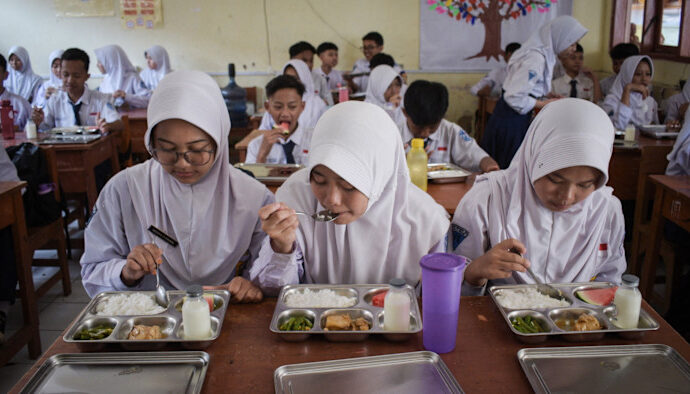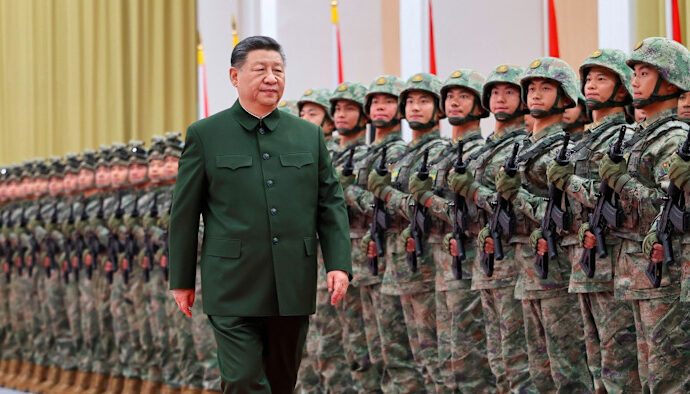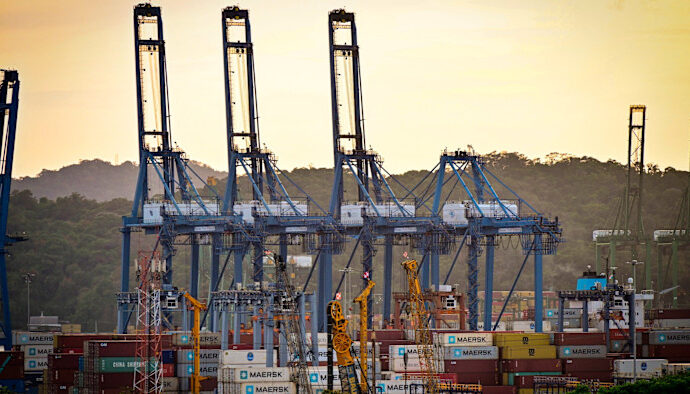“Abe is dead and that’s it,” a social-media user called Zhang Beihai wrote to her 2.6m followers on Weibo, a Twitter-like platform. “He deserved to perish.” Another Weibo user went further: “His whole family deserves to die.” The assassination of Abe Shinzo, Japan’s former prime minister, on July 8th elicited a wave of joyous reactions online in China, where he was widely reviled. “News just in,” quipped one. “us President Kennedy meets Japanese Prime Minister Abe Shinzo.”
Japan is a common target of the nationalists who dominate China’s digital high ground. From an early age Chinese are taught to resent the country for its invasion of China in the 1930s and 1940s, and for the atrocities it committed. Mr Abe was disliked for visiting the Yasukuni shrine in Tokyo, where war criminals are honoured, and for expressing support for Taiwan, which China regards as its territory. One commenter on Weibo said she would “applaud” if the whole of Japan were to “sink to the bottom of the sea”.
But Japan is only one of many targets. The nationalists scorn America, all of its friends, and Chinese people they deem to be pro-Western. Their vitriol rarely suffers the censorship to which liberal sentiment is routinely subjected. Some of China’s biggest online celebrities are nationalists whose social-media accounts attract millions of followers. Mobs quickly form online, using microblogs, short videos and messaging apps to wage furious verbal campaigns against “traitors”, “spies” and “secondary devils” (Chinese who collaborate with foreign enemies).
Fang Fang became an object of nationalist ire in 2020, when she wrote the 60th and final instalment of an internet diary about life in Wuhan in central China when the pandemic began. Her journal had described not only the hardships of the world’s first city to experience a covid-19 lockdown, but also her own. For daring to criticise the government’s bungled response, she was subjected to a torrent of online abuse from nationalists. “They behave like a pack of thugs,” Fang Fang fumed, “attacking anyone who fails to co-operate with them, launching wave after wave of attacks.” She compared the onslaught to Mao’s Cultural Revolution of the 1960s and 1970s with its murderous Red Guard mobs. “Today I even saw news that people are preparing to send a squad to Wuhan to kill me,” she wrote in April 2020 as the furore swelled.
Such nationalism worries not only liberals such as Fang Fang, a 67-year-old former member of China’s literary aristocracy. It has also raised anxiety in the West and among many of China’s neighbours. Foreign observers see it as a reflection of the Communist Party’s own mindset, and wonder whether it could portend more aggressive behaviour by China abroad.
American officials avoid pointing fingers at China when talking about the growth of nationalism in authoritarian countries—but it is on their minds. In a national-security directive published in March 2021, President Joe Biden said “America’s fate” was becoming increasingly linked to events abroad. “We face a world of rising nationalism, receding democracy, growing rivalry with China, Russia and other authoritarian states,” he said. His secretary of state, Antony Blinken, made a similar point two months later. “Nationalism is resurgent, repression is rising…and attacks against the rules-based order are intensifying,” he told a virtual meeting of the un Security Council. He was clearly thinking of China.
Russia’s unprovoked invasion of Ukraine appeared to vindicate some of America’s anxieties. Western officials now wonder whether nationalism in China—both the leadership’s and that of the Chinese public—may lead it down a similar path. They worry most about the fate of democratic Taiwan. Taking control of the island has been a project of Chinese nationalism ever since 1949, when the Communist Party seized power on the mainland, forcing the defeated Nationalist Party, or Kuomintang (kmt), to flee to Taiwan. In 2017 China’s leader, Xi Jinping, said the country’s “complete reunification” was an “inevitable requirement for realising the great rejuvenation of the Chinese nation”, which he has said should be completed by mid-century. Like his predecessors, he has not ruled out using force.
How much will nationalism shape Mr Xi’s decisions about whether to attack Taiwan? Or to use military muscle against other countries with which China has territorial disputes? They are numerous. China claims the Japanese-controlled Senkaku islands (known in China as the Diaoyu) in the East China Sea. It claims parts of the South China Sea also claimed by five other countries. It disagrees with India as to where their 3,400km border lies. In meetings with foreign counterparts, Chinese officials sometimes point to public sentiment on such matters as a force that they must contend with when devising policy. Are they overegging it?
Tough on Taiwan
China’s nationalists are certainly becoming more easily aroused and quick to demand tough action against perceived enemies, especially Taiwan’s China-sceptic leadership. Following Mr Abe’s death, Sima Nan, one of China’s best-known nationalists with nearly 3m followers on Weibo, mused online about whether it would be right to assassinate Taiwan’s president, Tsai Ing-wen. “The peaceful liberation of Taiwan is the desire of all Chinese people,” he wrote. “If stabbing Tsai Ing-wen to death could bring about peaceful unification, wouldn’t people be overjoyed?”
Videos have circulated on Weibo in which two nationalists go further, arguing that China should seize the opportunity now, while America is distracted by Ukraine, to launch a military assault. It could finish the job in three days, says one of them, Li Yi, an academic who has 43,000 subscribers on YouTube and thousands of followers on Weibo. Mr Li gives talks in China about his belief that peaceful unification with Taiwan—still the party’s official aim—is unattainable. One of his recent lectures on this theme was given at a training academy for officials run by a district-level party committee in Beijing.

But Mr Li’s opinions are controversial, even within the establishment. In 2020 Qiao Liang, a hawkish former general, published an unusual rebuke to those who have been demanding an invasion of Taiwan. No government decision, he said, is made merely on the basis of public views. “Restraining factors must first be considered.” He wrote that doing otherwise “may be patriotic in name, but harm the country in practice”. Hu Xijin, a former editor of Global Times, a chest-thumping tabloid in Beijing, suggested in a recent vlog that public opinion would not goad China into action. “If we think that the time isn’t ripe for resolving the Taiwan problem militarily,” he said, “no force can compel us to start a conflict.”
China’s popular nationalism has partly been shaped by the party itself. After it crushed the Tiananmen Square protests of 1989 it ramped up the teaching of “patriotism” which, officials insist, involves loving the party as well as the country. Since then, schools have been required to stress the humiliation China suffered at the hands of foreigners before the party seized power, going back to the opium wars launched by Britain in the 19th century. The aim is to inculcate a sense of victimhood, and gratitude to the party for making China strong again. It has helped the party’s case that the country has enjoyed rapid economic growth for most of the past three decades. So, too, has Mr Xi’s more assertive approach to foreign policy and a strong perception among many Chinese, especially since the global financial crisis of 2007-09, that the West is in decline.
For now the party still appears capable of controlling popular nationalism to suit its purposes. Before Mr Xi took over in 2012, it occasionally permitted large-scale protests against Western countries, in part to give China diplomatic advantage by showing how much Western interests in China stood to suffer. In 1999 officials bused students to Beijing’s embassy district to stage demonstrations outside the American and British missions after nato’s bombing of the Chinese embassy in Serbia (China does not accept that this was an accident). In the months leading up to Mr Xi’s assumption of power the party tolerated numerous anti-Japanese protests over the contested Senkakus.
Digital only
But Mr Xi appears more nervous than his predecessors. While fostering the online variety, he has kept real-world nationalism on a much tighter rein. Mr Xi’s hard line on ngos applies almost as much to those dedicated to nationalist causes as it does to ones that champion civil rights. Nothing has been allowed in China that is comparable to Russia’s thuggish nationalist youth group, Nashi (Ours), which flourished for a few years with the Kremlin’s blessing. For all the death threats that fly around online, there have been no reports of anyone actually being killed by nationalist protesters, which suggests that officials do not want such violence. Fang Fang and Mr Xi are in their late 60s. Their worldviews may be very different, but both have memories of the Cultural Revolution, which traumatised people across the political spectrum. Mr Xi and his father were denounced by Red Guards. An elder sister was “persecuted to death”, according to an official account.
In 2017 the party allowed a scattering of small demonstrations against South Korea over that country’s decision to deploy an American anti-missile system called thaad—China said it would threaten its security. But in the decade since Mr Xi took over, there have been no big nationalist protests on the streets. More than ever, stability has been the party’s watchword. In the build-up to a five-yearly party congress which is expected to take place late this year officials have become even twitchier. Recent efforts in Henan province to deter demonstrations by account-holders in failed rural banks have shown how nervous they are (see next story). Since Mao’s day there have been no known demonstrations relating to Taiwan. That is clearly because the party does not want bellicose crowds to complicate a relationship that could embroil China in a nuclear conflict with America.
During the pandemic, however, the party has propelled popular nationalism to new heights. The party’s propagandists speak of “the West’s chaos and China’s order”—a line that at least until recently has resonated with many Chinese who appreciated the party’s huge effort to keep the virus out of the country and to deploy legions of people to contain outbreaks at home. As a result of this vigilance, the death toll was kept extremely low and most Chinese were able to go about their lives much as normal.
But recently the mood has changed. Nationalism is no longer proving such an effective social glue. The Omicron variant of the coronavirus has been much harder to curb; lockdowns have become far more frequent. Shanghai and several other big cities have suffered weeks of draconian restrictions. Many people have protested online, accusing officials in locked-down areas of failing to provide enough help with food supplies and of making it life-threateningly difficult to get treatment other than for covid. Universities have been quiet for most of the Xi era. In May, however, frustrated students on several campuses have staged small demonstrations against quarantine rules. Some netizens have been daring to say that Fang Fang got it right.
So worried have officials become that in April, during a two-month lockdown in Shanghai, Weibo censored posts containing the first line of the national anthem: “Arise, ye who refuse to be slaves.” Recently Weibo users have again been posting that line, this time with pictures of officials dispersing protesting bank-savers in Henan.
Mr Xi knows how difficult it sometimes can be to keep patriots on message. The Tiananmen Square protests of 1989 were a dramatic example. Students took to the streets chanting “patriotism is no crime.” They described their actions as a “patriotic, democratic movement”—hoping that highlighting their love of China would help to temper the party’s hostility. Their tactics worked, for a while, as leaders bickered over whether or not to acknowledge the students’ patriotism. During the anti-Japanese protests of 2012 some demonstrators held up portraits of Mao. They were fans of Bo Xilai, a regional leader who had been arrested after a power struggle with Mr Xi. Mr Bo had tried to build support by appealing to nostalgia for the Mao era (those parts of it that did not involve gang violence). He was sentenced to life in prison in 2013.
For the party, online nationalism is a useful tool for crushing dissent—liberals are quickly leapt upon by nationalist trolls. But it is a murky world with pitfalls for the party, too. The neo-Maoists have long since suppressed their ardour for Mr Bo (expressing support for him would be far too risky under Mr Xi). However they remain vocal online, as cheerleaders for nationalist causes but also as critics of China’s social ills, such as the yawning gap between rich and poor, corruption and the “exploitation” of migrant workers from the countryside. In 2018 the police arrested several neo-Maoist student activists who had been campaigning for better conditions for factory workers.
Not Maoist enough
The online Maoists snipe at those they regard as being on the side of the “bureaucrat capitalists” who hold sway over business and politics. One of their bêtes noires is Mr Hu, the former editor of the Global Times who, with 24.5m followers on Weibo, is probably the most famous of China’s online nationalists. To the neo-Maoists, he is not nationalist enough. They have excoriated him for appealing to netizens to be on their guard when responding to Mr Abe’s death. Too much cheering over it has been exploited by China’s critics to “blacken” the country, he argued in his vlog.
There is a commercial aspect to China’s online nationalism that must also make it tricky to assess where the public truly stands. Online influencers, who earn money by using social media to draw attention to sponsors’ products, use nationalism as clickbait. People are drawn by the conspiracy theories that influencers peddle about, say, American military involvement in creating and spreading covid (disinformation that Chinese officials have eagerly encouraged to dampen speculation in the West about whether the virus may have leaked from a lab in Wuhan). In an internet environment that is so heavily censored, some netizens may revel in nationalist mudslinging simply because of the freedom they are given to do so. Bashing liberals carries no risks.
But the West still worries. At the party congress later this year, Mr Xi is expected to secure a third term as the party’s leader. This will be a break from what many believed had become a norm: that the general secretary would serve for a maximum of two terms. When it became clear four years ago that this was Mr Xi’s plan, some members of the elite grumbled about the idea. They had hoped that the party was moving towards a system of predictable, orderly succession. Some analysts now wonder whether, to justify his continued reign, Mr Xi will play up his nationalist credentials, perhaps by suggesting that only he can secure unification with Taiwan. Western diplomats are anxiously looking out for hints of a tougher line.
Despite frequent forays by Chinese military aircraft and vessels around the island, there are few signs of imminent danger. But China’s nationalism has turned uglier, and the politics of succession in China has always been fraught with intra-party tension. It is not impossible that opponents of Mr Xi, or those looking ahead to the day when he eventually departs from the political scene, may adopt more strident forms of nationalism. Mr Xi has nurtured a volatile force. He may not always be so able to keep it under control. ■
The Economist


